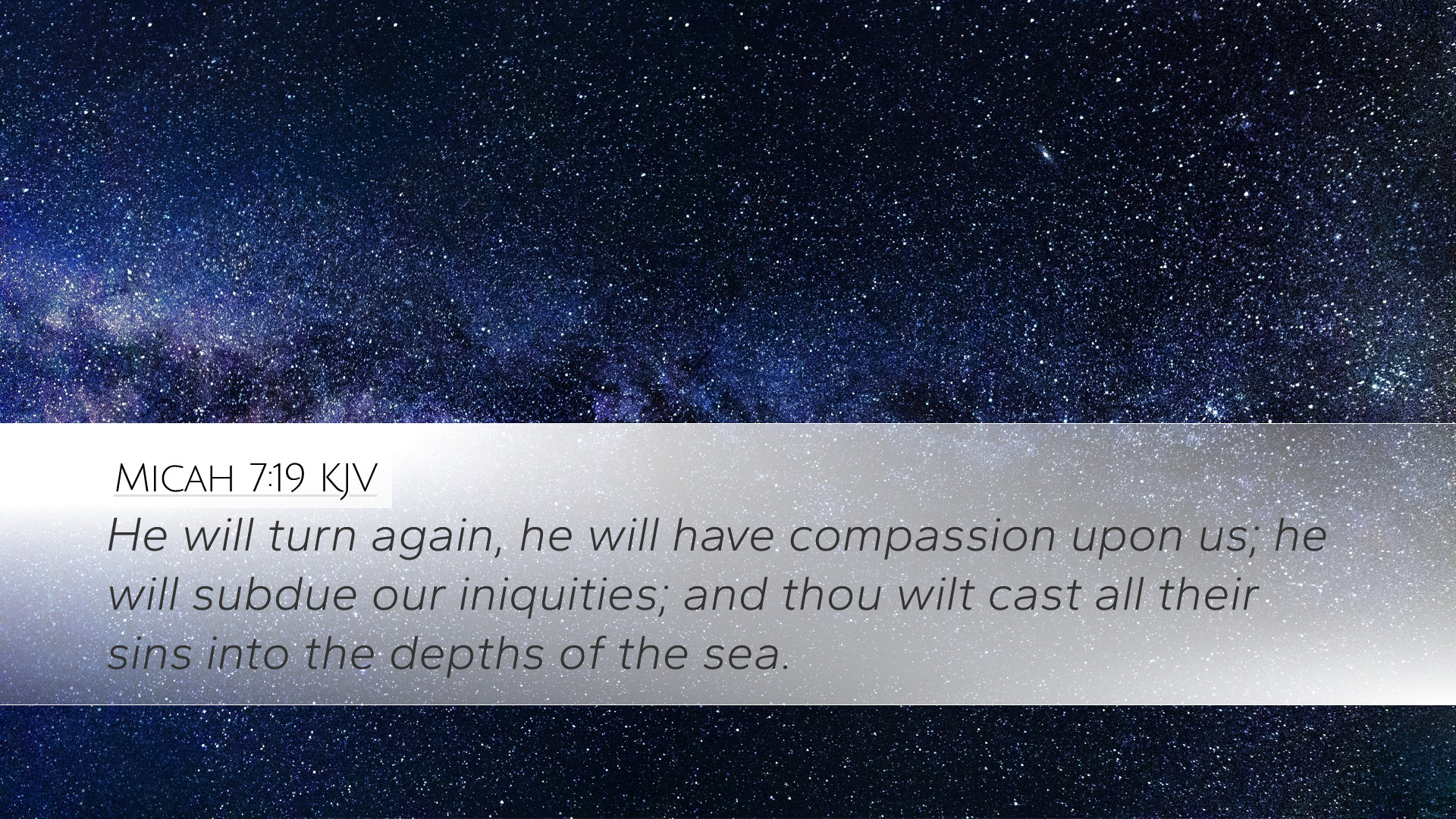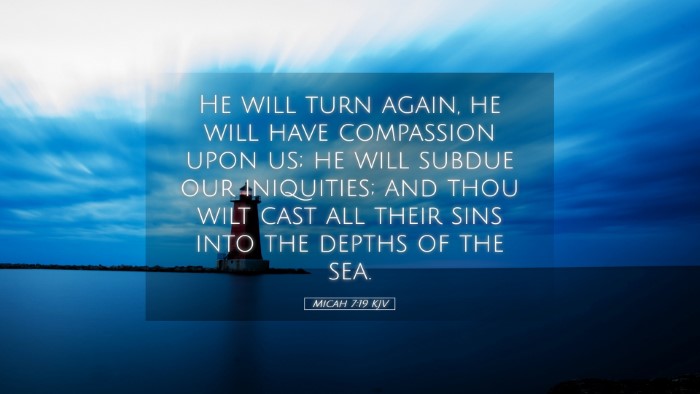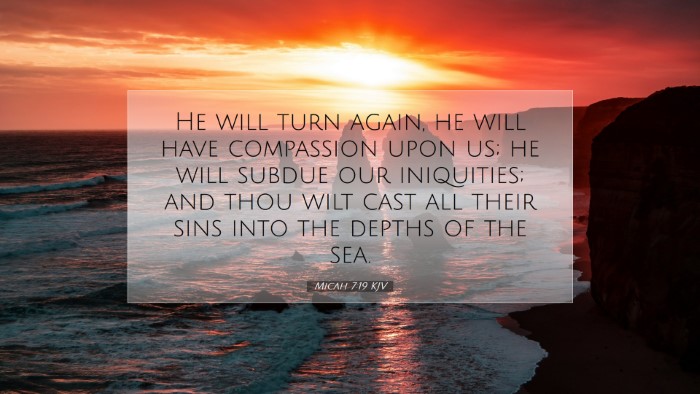Old Testament
Genesis Exodus Leviticus Numbers Deuteronomy Joshua Judges Ruth 1 Samuel 2 Samuel 1 Kings 2 Kings 1 Chronicles 2 Chronicles Ezra Nehemiah Esther Job Psalms Proverbs Ecclesiastes Song of Solomon Isaiah Jeremiah Lamentations Ezekiel Daniel Hosea Joel Amos Obadiah Jonah Micah Nahum Habakkuk Zephaniah Haggai Zechariah MalachiMicah 7:19
Micah 7:19 KJV
He will turn again, he will have compassion upon us; he will subdue our iniquities; and thou wilt cast all their sins into the depths of the sea.
Micah 7:19 Bible Commentary
Commentary on Micah 7:19
Verse in Context:
Micah 7:19 states, "He will again have compassion on us; He will tread our iniquities underfoot. Yes, You will cast all our sins into the depths of the sea." This verse encapsulates God's mercy and the assurance of redemption for His people, which is a significant theme in the prophetic writings of Micah.
General Overview
This verse is pivotal because it reflects both the sorrow over sin and the hope of restoration. It resonates with believers who grapple with their imperfection yet desire reconciliation with God. The promise of God's compassion is a source of great encouragement.
Insights from Commentaries
Matthew Henry's Commentary
Henry emphasizes the profound nature of God’s compassion. He notes that the phrase "He will again have compassion on us" suggests a returning or renewed feeling of mercy, indicating that God’s compassion is both persistent and renewing after seasons of judgment.
- Compassion: It is a fundamental characteristic of God. Despite Israel’s waywardness, His inclination to forgive and restore shines through as an unwavering promise.
- Iniquity Trampled: The image of God treading iniquities underfoot symbolizes His authority and power over sin, illustrating a complete overcoming of our sins, effectively erasing them.
Albert Barnes' Notes on the Bible
Barnes elaborates on the depths of God's forgiveness. He points out that the metaphor of casting sins into the depths of the sea is striking, illustrating how far removed our transgressions are from us once they are forgiven.
- Symbolism of the Sea: The sea is vast and unknowable, signifying an absolute removal; our sins are not just forgiven but forgotten by God, illustrating His grace.
- Hope and Restoration: Barnes stresses the dual aspects of judgment and hope throughout the book of Micah, affirming that while punishment comes, so too does the opportunity for restoration.
Adam Clarke's Commentary
Clarke highlights the assurance of divine mercy in this verse. He points out the anthropomorphic expressions significant to the understanding of God’s nature—how He interacts with humanity through compassion and forgiveness.
- Divine Sympathy: Clarke interprets God's compassion as a deep sympathy for His people. Their sins affect Him, yet His response is grace rather than wrath.
- Finality of Forgiveness: The act of casting sins into the sea illustrates the finality and magnitude of God's forgiveness, emphasizing that believers should likewise live in the assurance of that grace.
Theological Implications
The theological significance of Micah 7:19 extends beyond mere historical context; it offers profound insights relevant to Christian doctrine. It underscores key themes such as:
- Grace and Mercy: The verse affirms that grace is not just a New Testament concept but a thread woven throughout the entirety of Scripture.
- Restoration: This restoration implies a covenant relationship where God remains faithful despite humanity's failures.
- Hope in Despair: For pastors and leaders, this verse serves as a powerful reminder of the hope that can be found even in times of apparent divine judgment.
Pastoral Applications
Pastors and church leaders can draw from Micah 7:19 in their ministry.
- Counseling and Comfort: In times of despair, reminding congregants of God’s active compassion can bring immense hope.
- Teaching on Forgiveness: This verse provides a biblical basis for teaching about God's forgiveness, encouraging believers to also forgive as they have been forgiven.
Conclusion
Micah 7:19 stands as a testimony of God’s unending compassion and the promise of restoration. Drawing from the rich heritage of biblical commentaries, scholars and pastors can better appreciate the depth of this verse and its application to both personal faith journeys and congregational teachings.


